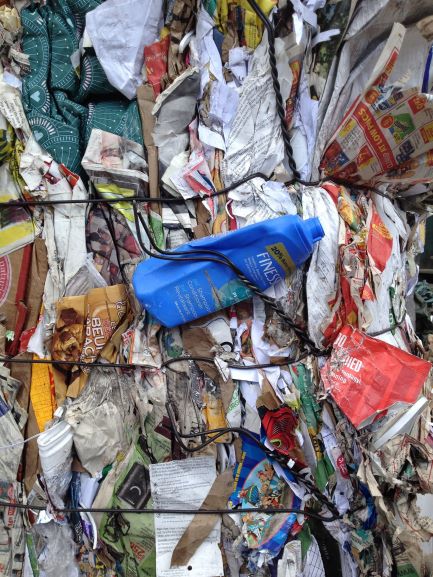So what’s the big deal about composting anyway? If you don’t live in a city that incentivises composting (in the U.S., San Francisco leads the way by offering curbside compost pickup), why bother doing it yourself? After all, it’s just food waste; it’s not like you’re sending tons of plastic, Styrofoam, and other non-biodegradables to the landfills. Why go through the work of separating your organic materials and maintaining a compost bin?

Methane Gas Reduction
A landfill exists as a compacted mass of trash and leachate (liquid runoff) sandwiched between two layers of clay and plastic. Landfills are largely intended to store trash rather than to promote the breaking down of waste. However, organic waste still rots, albeit at a slower rate than usual. In the oxygen-deprived environment of the landfill, bacteria produce methane gas, which some landfill systems vent directly into the air we breathe.
Over twenty times more potent than carbon dioxide, methane gas is a major player in the game of greenhouse gas emissions. Over thirty percent of all methane emissions in the United States come from landfills, placing it just behind the energy sector and agriculture for largest sources of methane emissions in the country according to the U.S. Energy Information Administration.
Composting reduces methane gas emissions because organic matter broken down in the presence of oxygen and water does not produce methane.
Better Soil & Better Crops
If you do any gardening, composted soil is amazing for your plants! Composted soil promotes higher yield, and furthermore, using composted soil reduces and even eliminates the need to use chemical fertilizers. Additionally, putting your organic waste to use as compost reduces your costs associated with gardening as you will no longer need to buy soil or fertilizer. Soil produced through composting also has superior structure, nutrients, and moisture-holding capacity to conventional soil.
Getting Started
Ready to get started composting? If your city doesn’t have a composting facility or program, getting started is easy! I will cover this more in a future post, but for now, here are some resources for more information about starting your own compost pile at home.
https://www.epa.gov/recycle/composting-home
https://www.compostingcouncil.org/?
References https://www.agric.wa.gov.au/climate-change/composting-avoid-methane-production https://www.cnbc.com/2018/07/13/how-san-francisco-became-a-global-leader-in-waste-management.html https://www.washington.edu/news/2015/12/16/composting-food-waste-remains-your-best-option-says-uw-study/ https://www.livescience.com/63559-composting.html https://www.livescience.com/32786-what-happens-inside-a-landfill.html https://www.vice.com/en_us/article/aeyxxz/in-todays-landfills-food-is-embalmed-for-decades-at-a-time https://www.eia.gov/environment/emissions/ghg_report/ghg_methane.php https://www.epa.gov/sustainable-management-food/reducing-impact-wasted-food-feeding-soil-and-composting
